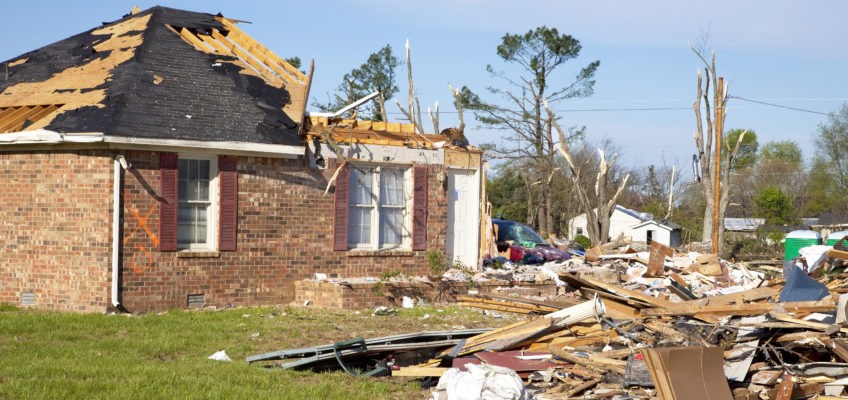

Home / Blog / Home Insurance / 5 Things To Know About Hurricane Insurance

It is glorious to live in a location like Florida, with palm trees and warm winds off the ocean, but living in a tropical paradise comes with some attendant risks. Damage to your home due to a hurricane, tropical storm, flood, or high winds is not just possible, it’s likely.
There are a few key things to consider when you are assessing insurance quotes for your home. We have listed these below for your quick perusal so you can make an informed decision about the best options for you.
What’s in a name?
Did you know that the difference between a tropical storm and a hurricane lies in whether meteorologists have named the storm? A storm needs to reach a certain intensity to earn a moniker, but if it does, you will need hurricane insurance to cover any damage caused as a result!
Free Life Insurance Comparison - Save up to 30%
No junk mail. No spam calls. Free quotes.
No Signup required
If you already live on the East or Gulf Coast, you are well aware of when hurricane season starts and ends. For those of you who are doing some research before you move, here’s the skinny: hurricane season runs from June to October, and peak season is from August to October.
Homes inland from the coasts can experience high winds but typically not flooding, which is taken into account by insurance companies when they assess you for a quote. So, you don’t need to know the wind patterns for your area, but you do need to know that your insurance company will know this data, and it will affect the price of your premiums.
It is also important to know when hurricane season occurs. Most insurance brokers will not issue hurricane insurance if a storm is imminent, which is the case for most of the hurricane season. This is why it’s important to be proactive and get your hurricane insurance in place before the storms set in.
You may be surprised to realize that your hurricane insurance does not cover wind damage. Every policy is different, but generally, if you have a coastline home, your hurricane insurance won’t cover wind damage caused by a hurricane. This is definitely a drawback for homeowners but from an insurer’s perspective, it’s a decision that’s absolutely necessary to stay in business. Otherwise, insurance companies that offer hurricane insurance would not be able to stay in business.
Inland homes often have wind damage rolled into their hurricane coverage, however.
Check whether your policy has “pooled” flood and hurricane coverage, a common practice that is more affordable than paying for each separately.
As with wind damage, it is entirely possible that flood damage is not covered by your hurricane insurance. If you live in a hurricane zone, flooding is common even if your house has not been directly hit by the hurricane. Just one inch of water can cause an average of $8,000 in damage to your home, so it’s worth investigating whether your insurance has pooled hurricane, wind, and flood damage coverage.
Almost certainly not. Insurance companies do not cover you for earthquakes, and mudslides are considered to be in the same category of events, which is an “earth movement.” However, if mud didn’t fall onto your house and instead was flowing into your home, it’s called a “mudflow” and is likely covered under your flood insurance.
Probably not, unfortunately. You could lose a great deal of food in a power outage, and you can have leak damage from your freezer (if you are not on site during the event). You could also have damage related to a basement sump pump not operating in the event of power outage. None of these circumstances are covered under hurricane Insurance, even if the power outage was caused by a named hurricane.
As you can see, insurance companies split hairs when it comes to your coverage. This is why it’s important to be working with a trained professional when you are assessing different types of policies.
Free Life Insurance Comparison - Save up to 30%
No junk mail. No spam calls. Free quotes.
No Signup required
Claire Smith Claire is a creative entrepreneur with a variety of marketing and content creation skills, including blog and web copy writing, research, and strategy. She has a Masters in Cultural Studies from Queen's University and is known for thinking laterally about marketing, based on her deep knowledge of people and behavior.